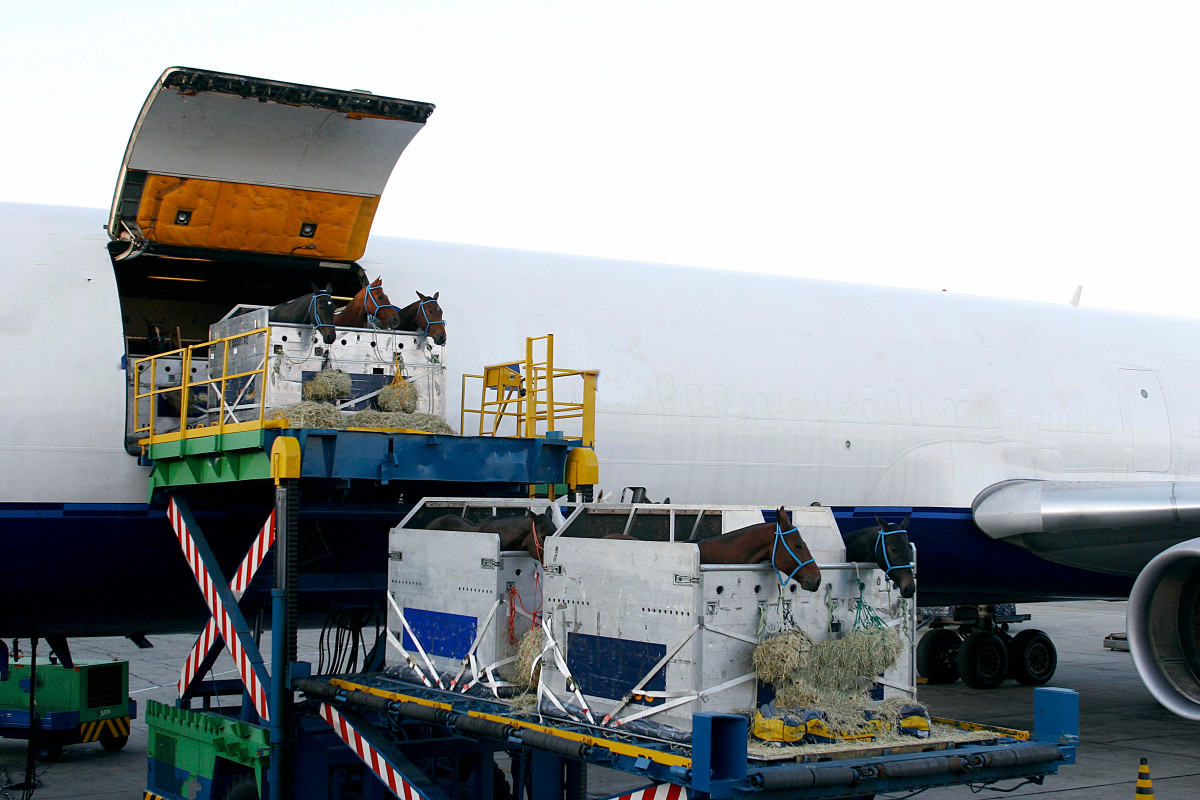
Morris Animal Foundation-funded researchers at Italy’s Università di Bologna are studying how horses are managed when transported in planes to identify factors that increase or decrease the risk of horse health and behavioral problems. What the team learns will help develop equine transport protocols for national and global agencies including the International Air Transportation Association (IATA).
“Right now, IATA’s guidelines are largely based on the experience of industry professionals with little scientific evidence or validation,” said Dr. Padalino. “They focus on air safety and cargo requirements, with limited provisions for the welfare needs of horses. We need to update flight regulations using evidence collected in a scientific way.”
Whether traveling by road, sea or air, horses are one of the most frequently transported domestic animals. Stressors associated with equine transport increase their risk of injury, disease and poor welfare. Many studies have documented the adverse effects of road transport on horses, but data on air transport stress is limited.
For this prospective study, the team is gathering data on about 2,000 horses flying routes to and from Europe, the United States, South Africa, Japan, Hong Kong, New Zealand and Australia. Researchers are working with horse owners, air cargo operators, flight grooms and veterinarians to fill out surveys to determine the incidence of health and behavioral problems they observe in their horses.
Survey questions are tailored to an expert’s respective role. For example, veterinarians are asked about horse body condition, heart rate and alertness—among other observations—before, during and after a journey. Data is collected from departure to five days post-arrival, within the window of time when symptoms usually reveal themselves. Horses that develop health issues will be treated in accordance with regulations within each jurisdiction.
“This is an excellent opportunity to fill significant existing knowledge gaps and identify where more focused research and policy development is needed,” said Dr. Janet Patterson-Kane, Morris Animal Foundation Chief Scientific Officer. “We have been flying blind, to a degree, when transporting our horses. This study will help us better understand how to optimize their health and welfare.”
While precise numbers aren’t known, Dr. Padalino estimates that about 30,000 horses are transported, on average, every year for competitions, breeding and sales, and sometimes due to the relocation of owners. A recent study of horses transported by air on 81 flights to Hong Kong found that for every 100 horses flown, about 11% developed pneumonia. On 60% of the flights, at least one horse was affected. The flight’s duration and transport during springtime, were both identified as risk factors.
In addition to improving horse health, the study might provide economic benefits to horse owners. Costs to transport a horse by air within the United States alone usually range from $5,000 to $30,000, but private charters can cost up to $100,000. That is a significant investment for animals that could develop travel-related illness and/or welfare issues during or shortly after travel.
About Morris Animal Foundation
Morris Animal Foundation’s mission is to bridge science and resources to advance the health of animals. Founded by a veterinarian in 1948, we fund and conduct critical health studies for the benefit of all animals. Learn more at morrisanimalfoundation.org.
Morris Animal Foundation, headquartered in Denver, is one of the largest nonprofit animal health research organizations in the world, funding more than $136 million in studies across a broad range of species.








